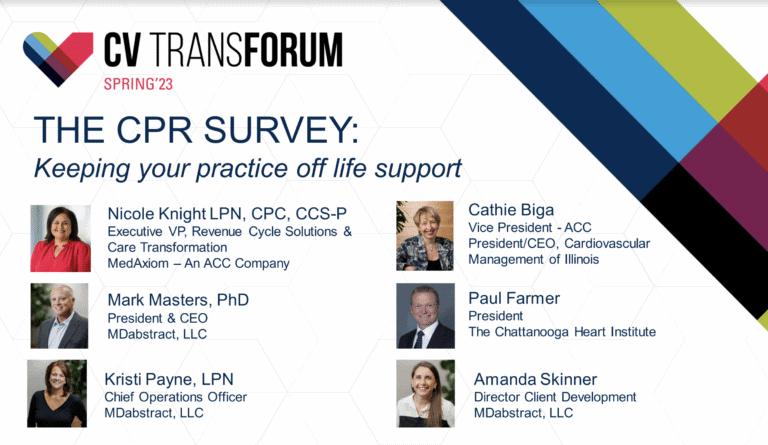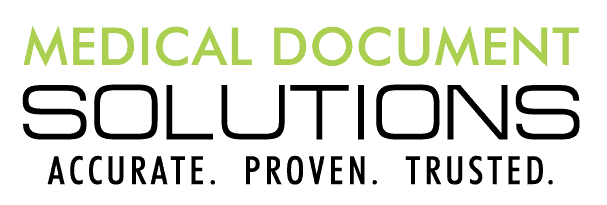The prevalence and widespread adoption of electronic health records (EHR) has resulted in a wealth of patient data that can be retrieved, analyzed, and put into its proper context to improve the quality of care that patients receive.
In order for a patient’s medical record to stay up to date, ongoing abstraction is a necessity. Ongoing medical record abstraction is the process of reviewing, analyzing, and summarizing relevant clinical data from a patient’s healthcare documents. This extracted information, which must be both accurate and relevant to the patient’s care, is then integrated into a patient’s chart. This allows healthcare providers to have a complete understanding of a patient’s medical history and current health status, thereby aiding in the development of an effective treatment plan and improving coordination of care.
The ultimate goal of any healthcare provider is to ensure the best possible patient outcomes. And to achieve this, they must answer a critical question: is the treatment plan prescribed for the patient’s condition the most effective one, likely to result in a successful outcome?
The absence of holistic and accurate patient data can hinder a healthcare provider’s ability to devise an optimal treatment plan, ultimately affecting the quality of care a patient receives. Therefore, ongoing medical records abstraction, when done correctly, significantly impacts patient outcomes.
The Role of Medical Records Abstraction in Patient Outcomes
Improved Continuity of Care
Abstraction ensures that patient information is not only accurate but also updated. The benefit of this is twofold. First, it enhances continuity of care, as the up-to-date records allow for a seamless transition between different care providers. Second, accurate and updated records serve as a fundamental tool in treatment planning.
The Expertise Factor
The accuracy of a patient’s records can directly influence the quality of care they receive therefore, the qualifications of the person completing abstraction matters and should be entrusted to individuals with the necessary levels of expertise. These individuals, besides being detail-oriented, must possess a sound understanding of clinical knowledge and healthcare systems.
Working with experts in ongoing medical records abstraction significantly reduces the likelihood of errors. These professionals are trained to identify and record crucial clinical data, resulting in more precise and comprehensive medical records. This attention to detail and accuracy ultimately translates into optimal patient experience.
Enhanced Decision-Making
Comprehensive medical records contribute significantly to informed decision-making. They form a foundation for evidence-based practice, which is becoming an increasingly important aspect of healthcare delivery. By providing a complete picture of a patient’s history and current health status, medical records abstraction aids in avoiding unnecessary or potentially harmful treatments.
The Value of Manual Abstraction in Improving Patient Outcomes
Despite advancements in technology and the widespread use of electronic health records, manual abstraction continues to hold significant value in improving patient outcomes. It serves as a bridge, connecting data-driven technologies with the intricacies and nuances of individual patient care.
Accuracy and Precision
One of the primary advantages of manual abstraction lies in its potential for accuracy and precision. Trained professionals bring a level of attention to detail that is challenging for even the most advanced algorithms to match. They can interpret complex medical terminology, understand contextual nuances within clinical notes, and recognize pertinent information that may be overlooked by automated systems. This heightened accuracy leads to more reliable patient records, providing healthcare providers with a holistic understanding of a patient’s health status and history, thereby improving decision-making and patient outcomes.
Dealing with Complex or Non-standardized Data
Another crucial advantage of manual abstraction is its ability to handle complex or non-standardized data. Clinical information can often be scattered across various sources or documented in non-standardized formats.
Skilled abstractors are adept at navigating these complexities. They can extract information from disperate sources, comprehend non-standardized or free-text entries, and correctly integrate this data into structured patient records. This comprehensive data integration is crucial for constructing a complete picture of a patient’s health.
Enhancing Patient-Centric Care
Manual abstraction plays a vital role in enhancing patient-centric care. While automated systems can capture quantitative data efficiently, they may struggle to capture qualitative information that could be crucial for understanding a patient’s unique experiences, preferences, and concerns. Manual abstractors can identify and record these qualitative aspects, providing a more holistic view of the patient.
Human Expertise
Lastly, manual abstraction adds an extra layer of human expertise to the data abstraction process. Abstractors bring a sense of insight and understanding that an automated system simply can’t replicate. They can perceive the nuances of a patient’s health situation, and capture the ‘story’ behind the raw data and put it into its proper context to better inform providers during the treatment process.
Get High-Performing Manual Abstraction Solutions for Your Healthcare Organization
As a trusted manual abstraction managed service provider, MDabstract’s team of experts remotely abstracts clinical information for documents, disparate sources and imaging reports as they are introduced into your data platform. This process transforms your data from static to dynamic, facilitating improved clinical workflows and business processes.
If you are looking to enhance your medical organization’s own data abstraction processes, book a 15-minute discovery call with us today.






